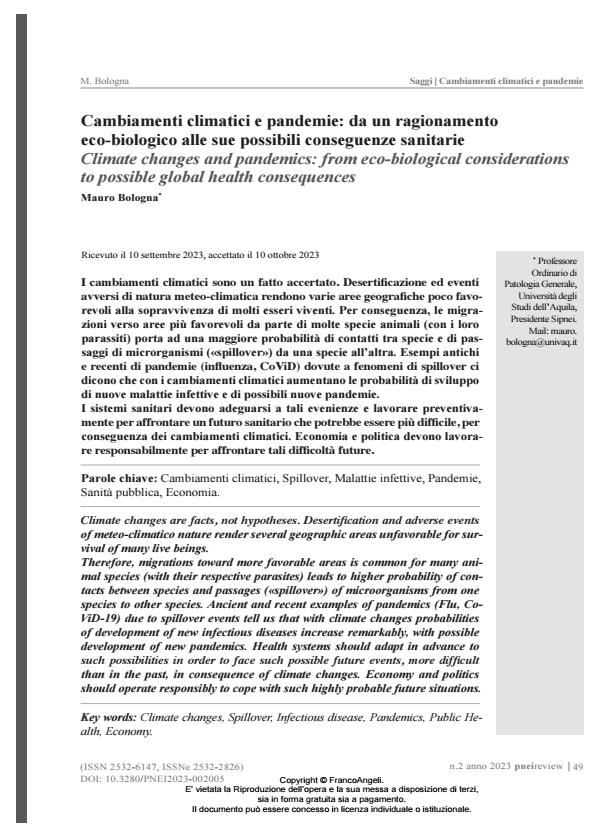Climate changes and pandemics: from eco-biological considerations to possible global health consequences
Journal title PNEI REVIEW
Author/s Mauro Bologna
Publishing Year 2023 Issue 2023/2
Language Italian Pages 10 P. 49-58 File size 1184 KB
DOI 10.3280/PNEI2023-002005
DOI is like a bar code for intellectual property: to have more infomation
click here
Below, you can see the article first page
If you want to buy this article in PDF format, you can do it, following the instructions to buy download credits

FrancoAngeli is member of Publishers International Linking Association, Inc (PILA), a not-for-profit association which run the CrossRef service enabling links to and from online scholarly content.
Climate changes are facts, not hypotheses. Desertification and adverse events of meteo-climatico nature render several geographic areas unfavorable for sur- vival of many live beings. Therefore, migrations toward more favorable areas is common for many ani- mal species (with their respective parasites) leads to higher probability of con- tacts between species and passages («spillover») of microorganisms from one species to other species. Ancient and recent examples of pandemics (Flu, Co- ViD-19) due to spillover events tell us that with climate changes probabilities of development of new infectious diseases increase remarkably, with possible development of new pandemics. Health systems should adapt in advance to such possibilities in order to face such possible future events, more difficult than in the past, in consequence of climate changes. Economy and politics should operate responsibly to cope with such highly probable future situations.
Keywords: Climate changes, Spillover, Infectious disease, Pandemics, Public He- alth, Economy.
Mauro Bologna, Cambiamenti climatici e pandemie: da un ragionamento eco-biologico alle sue possibili conseguenze sanitarie in "PNEI REVIEW" 2/2023, pp 49-58, DOI: 10.3280/PNEI2023-002005